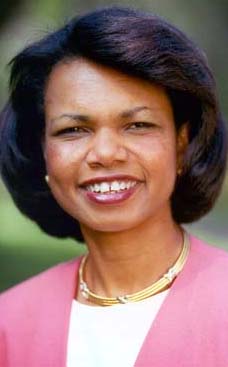2006.03.03: March 3, 2006: Headlines: COS - Ethiopia: Return to our COS - Ethiopia: Asbury Park Press Online: I was retracing the steps my partner, Jack, took almost 40 years ago in the Peace Corps in Ethiopia
Peace Corps Online:
Directory:
Ethiopia:
Peace Corps Ethiopia :
The Peace Corps in Ethiopia:
February 8, 2006: Headlines: COS - Ethiopia: Return to our COS - Ethiopia: USA Today: My partner, Jack, who was a Peace Corps volunteer in Ethiopia 37 years ago, says I don't have a clue about what I'm getting myself into. :
2006.03.03: March 3, 2006: Headlines: COS - Ethiopia: Return to our COS - Ethiopia: Asbury Park Press Online: I was retracing the steps my partner, Jack, took almost 40 years ago in the Peace Corps in Ethiopia
I was retracing the steps my partner, Jack, took almost 40 years ago in the Peace Corps in Ethiopia

We went with few expectations. Jack assumed everyone he once knew would be dead. Life expectancy hovers around 48, and with wars, AIDS, famines and brutal dictatorships, hopes of finding anyone still alive were dim. But we hadn't been in Gorgora 10 minutes before someone yelled "Mr. Jack?'' His name was Tesfaye, a man who was only 6 when Jack lived there. His brother, now dead, was in Jack's class. But Tesfaye had his own memory: a Frisbee Jack had given him, something he loved so much that he made his mother serve him dinner on it every night.
I was retracing the steps my partner, Jack, took almost 40 years ago in the Peace Corps in Ethiopia
Ethiopian village retains a sense of "home'
Posted by the Asbury Park Press on 03/4/06
BY CRAIG WILSON
USA TODAY
Maybe you can go home again. If only for a moment.
Traveling to Ethiopia, as we did last month, wasn't exactly going "home'' for me. I'd never been there before.
But for some reason it felt right. Maybe because I was retracing the steps my partner, Jack, took almost 40 years ago in the Peace Corps. We were on a pilgrimage to Gorgora, a dusty village on Lake Tana, where he taught in the late '60s.
We went with few expectations. Jack assumed everyone he once knew would be dead. Life expectancy hovers around 48, and with wars, AIDS, famines and brutal dictatorships, hopes of finding anyone still alive were dim.
But we hadn't been in Gorgora 10 minutes before someone yelled "Mr. Jack?''
His name was Tesfaye, a man who was only 6 when Jack lived there. His brother, now dead, was in Jack's class. But Tesfaye had his own memory: a Frisbee Jack had given him, something he loved so much that he made his mother serve him dinner on it every night.
"Is Huluagerish still alive?'' Jack asked, referring to the feisty woman who cooked for him and "Mr. Paul,'' another Peace Corps volunteer, now an attorney in San Francisco.
"Yes, yes. She's still up in her house,'' he said.
What happened next is all a blur. We were scrambling up a hillside filled with dogs and children and chickens. And there, on the path in front of us, appeared the woman I had heard about for years.
She made a noise I'd never heard before. It was a cross between a scream and a cry of joy. She grabbed Jack and wouldn't let go. And then she grabbed me so tight I thought my ribs would break. She didn't have a clue who I was.
Jack cried. I cried. Huluagerish cried. Even our Ethiopian driver broke down.
She then pulled us into her two-room mud house … it says volumes about her that in this monochromatic brown village, she had painted her house turquoise and pink … and sat down next to Jack, repeatedly slapping his forearm so hard I thought it would break. Maybe she was making sure it was really him in the flesh.
"Ato Jack,'' she kept saying. "Ato Jack.'' (Mr. Jack.)
A dozen giggling children gathered outside her corrugated tin door, peering in to see who these faranji (foreigners) were. The chickens were bolder and walked right in.
Come back in an hour, she told our driver. When we returned, she had changed into a long white dress, covered her basic furniture with flowered slipcovers and sprinkled water on the dirt floor to keep the dust down. She also had prepared a basket of popcorn, along with the traditional dish of injera and wat (spongy bread and stew).
She sat down on a low stool in the middle of the dark room and made coffee on a tiny dung-burning stove, cleansing the cups and saucers with hot water from a kettle, finally pouring the coffee into tiny cups from 3 feet up, adding a healthy dose of sugar for good measure. (Anyone who has ever been to Ethiopia knows it has the best coffee in the world.)
Then all international borders came down. We gossiped. Jack's rusty Amharic came back in fits and starts. Our Ethiopian driver translated the rest.
We talked about her children (one, now a teacher, visited us the next day at our hotel in Gonder), about the new well so the village women no longer have to walk down to the lake, and about the state of the school where Jack taught. (It's deteriorating.)
Jack asked her age. She said 50. There was a pause, then we decided to accept that as fact. A woman's age is never contested. Not even in Ethiopia.
Jack also learned that one of his star students, Dawit, was now a parasitologist in Addis Ababa. We had yet another tearful reunion with him two weeks later.
I was exhausted but couldn't sleep. Ethiopia was coming at me too fast.
A tattered tourism sticker was plastered on the window of the lakeside hotel where we stayed that night: "Discover a place where there are still places to discover.''
We had only just begun.
When this story was posted in March 2006, this was on the front page of PCOL:





Peace Corps Online The Independent News Forum serving Returned Peace Corps Volunteers
 | March 1, 1961: Keeping Kennedy's Promise
On March 1, 1961, President John F. Kennedy issues Executive Order #10924, establishing the Peace Corps as a new agency: "Life in the Peace Corps will not be easy. There will be no salary and allowances will be at a level sufficient only to maintain health and meet basic needs. Men and women will be expected to work and live alongside the nationals of the country in which they are stationed--doing the same work, eating the same food, talking the same language. But if the life will not be easy, it will be rich and satisfying. For every young American who participates in the Peace Corps--who works in a foreign land--will know that he or she is sharing in the great common task of bringing to man that decent way of life which is the foundation of freedom and a condition of peace. " |
 | The Peace Corps Library
The Peace Corps Library is now available online with over 40,000 index entries in 500 categories. Looking for a Returned Volunteer? Check our RPCV Directory. New: Sign up to receive PCOL Magazine, our free Monthly Magazine by email. Like to keep up with Peace Corps news as it happens? Sign up to recieve a daily summary of Peace Corps stories from around the world. |
 | Paid Vacations in the Third World?
Retired diplomat Peter Rice has written a letter to the Wall Street Journal stating that Peace Corps "is really just a U.S. government program for paid vacations in the Third World." Director Vasquez has responded that "the small stipend volunteers receive during their two years of service is more than returned in the understanding fostered in communities throughout the world and here at home." What do RPCVs think? |
 | RPCV admits to abuse while in Peace Corps
Timothy Ronald Obert has pleaded guilty to sexually abusing a minor in Costa Rica while serving there as a Peace Corps volunteer. "The Peace Corps has a zero tolerance policy for misconduct that violates the law or standards of conduct established by the Peace Corps," said Peace Corps Director Gaddi H. Vasquez. Could inadequate screening have been partly to blame? Mr. Obert's resume, which he had submitted to the Peace Corps in support of his application to become a Peace Corps Volunteer, showed that he had repeatedly sought and obtained positions working with underprivileged children. Read what RPCVs have to say about this case. |
 | Why blurring the lines puts PCVs in danger
When the National Call to Service legislation was amended to include Peace Corps in December of 2002, this country had not yet invaded Iraq and was not in prolonged military engagement in the Middle East, as it is now. Read the story of how one volunteer spent three years in captivity from 1976 to 1980 as the hostage of a insurrection group in Colombia in Joanne Marie Roll's op-ed on why this legislation may put soldier/PCVs in the same kind of danger. Latest: Read the ongoing dialog on the subject. |
 | PC establishes awards for top Volunteers
Gaddi H. Vasquez has established the Kennedy Service Awards to honor the hard work and service of two current Peace Corps Volunteers, two returned Peace Corps Volunteers, and two Peace Corps staff members. The award to currently serving volunteers will be based on a demonstration of impact, sustainability, creativity, and catalytic effect. Submit your nominations by December 9. |
 | Friends of the Peace Corps 170,000 strong
170,000 is a very special number for the RPCV community - it's the number of Volunteers who have served in the Peace Corps since 1961. It's also a number that is very special to us because March is the first month since our founding in January, 2001 that our readership has exceeded 170,000. And while we know that not everyone who comes to this site is an RPCV, they are all "Friends of the Peace Corps." Thanks everybody for making PCOL your source of news for the Returned Volunteer community. |
Read the stories and leave your comments.

Some postings on Peace Corps Online are provided to the individual members of this group without permission of the copyright owner for the non-profit purposes of criticism, comment, education, scholarship, and research under the "Fair Use" provisions of U.S. Government copyright laws and they may not be distributed further without permission of the copyright owner. Peace Corps Online does not vouch for the accuracy of the content of the postings, which is the sole responsibility of the copyright holder.
Story Source: Asbury Park Press Online
This story has been posted in the following forums: : Headlines; COS - Ethiopia; Return to our COS - Ethiopia
PCOL31893
71















